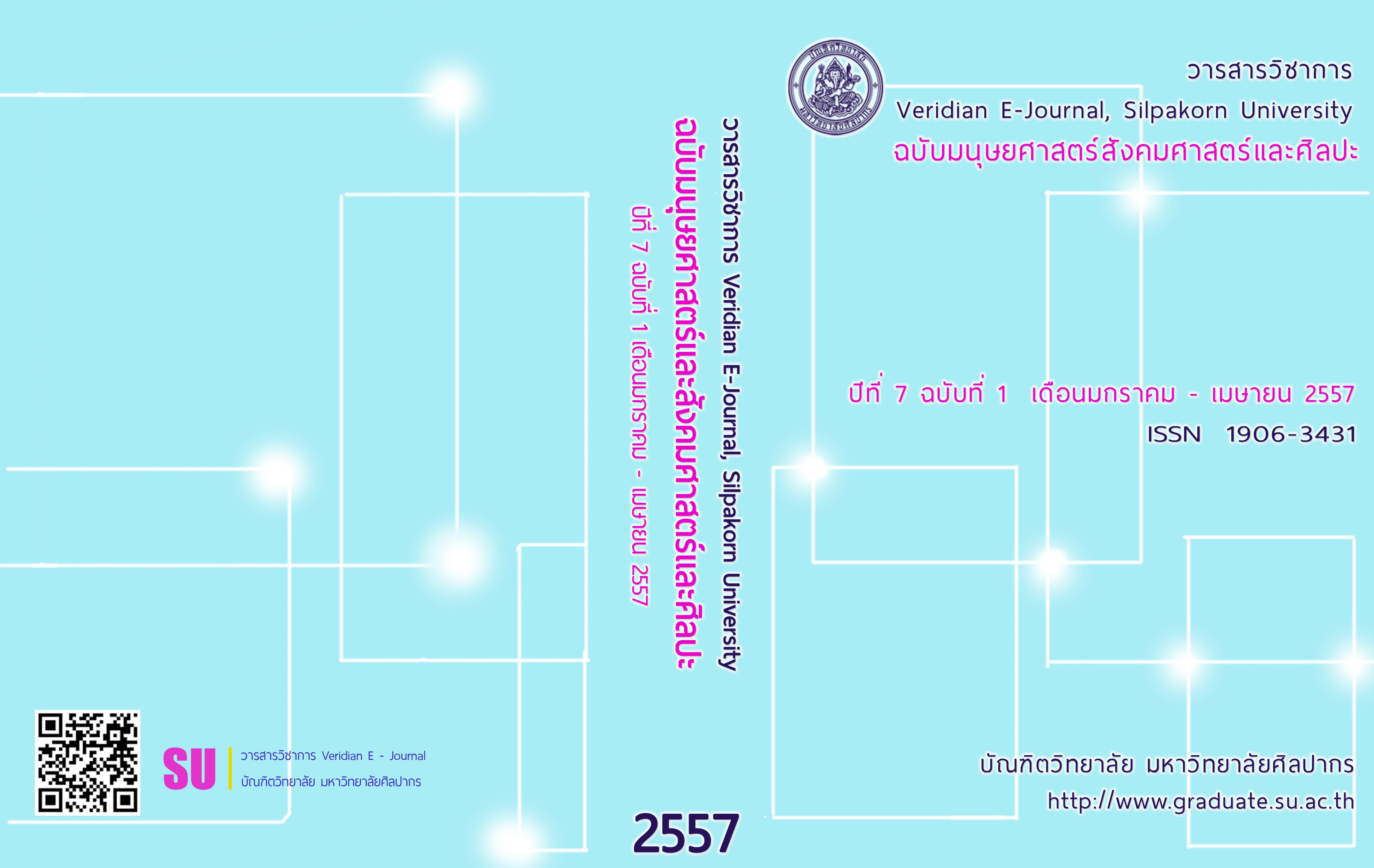การเรียนรู้คำศัพท์ภาษาอังกฤษของนักเรียนระดับชั้นประถมศึกษาปีที่ 5 ด้วยกิจกรรมโครงงานบนฐานประสบการณ์
Main Article Content
Abstract
บทคัดย่อ
การวิจัยครั้งนี้มีวัตถุประสงค์เพื่อ 1) ศึกษาผลการเรียนรู้คำศัพท์ภาษาอังกฤษของนักเรียนชั้นประถมศึกษาปีที่ 5 ก่อนและหลังการปฏิบัติกิจกรรมโครงงานบนฐานประสบการณ์ 2) เปรียบเทียบผลการเรียนรู้คำศัพท์ภาษาอังกฤษของนักเรียนที่มีความสามารถต่างกันหลังการปฏิบัติกิจกรรมโครงงานบนฐานประสบการณ์ และ 3) ศึกษาความคิดเห็นของนักเรียนที่ได้รับการเรียนรู้คำศัพท์ภาษาอังกฤษจากการปฏิบัติกิจกรรมโครงงานบนฐานประสบการณ์ กลุ่มตัวอย่างเป็น นักเรียนชั้นประถมศึกษาปีที่ 5 จำนวน 60 คน ซึ่งสุ่มมาแบบเจาะจง แบ่งออกเป็น 3 กลุ่ม คือ กลุ่มเก่ง กลุ่มปานกลาง และกลุ่มอ่อน เครื่องมือที่ใช้ในการวิจัยได้แก่ แบบทดสอบวัดความรู้พื้นฐานคำศัพท์ แผนการจัดการเรียนรู้ภาษาอังกฤษด้วยกิจกรรมโครงงาน แบบทดสอบวัดผลสัมฤทธิ์ทักษะด้านคำศัพท์ และแบบสอบถามความคิดเห็นของนักเรียน สถิติที่ใช้ในการวิเคราะห์ข้อมูล คือ ค่าเฉลี่ย ส่วนเบี่ยงเบนมาตรฐาน การทดสอบที และการวิเคราะห์ความแปรปรวนร่วม
ผลการวิจัยพบว่า 1) ผลการเรียนรู้คำศัพท์ภาษาอังกฤษของนักเรียนชั้นประถมศึกษาปีที่ 5 หลังจากการปฏิบัติกิจกรรมโครงงานบนฐานประสบการณ์ โดยรวมมีคะแนนสูงกว่าก่อนการปฏิบัติกิจกรรม แตกต่างกันอย่างมีนัยสำคัญทางสถิติที่ระดับ .01 2) นักเรียนชั้นประถมศึกษาปีที่ 5 ที่มีความสามารถต่างกัน มีผลการเรียนรู้คำศัพท์ภาษาอังกฤษแตกต่างกัน อย่างมีนัยสำคัญทางสถิติที่ระดับ .01 และ 3) นักเรียนมีความคิดเห็นต่อการเรียนรู้คำศัพท์ภาษาอังกฤษจากการปฏิบัติกิจกรรมโครงงานบนฐานประสบการณ์อยู่ในระดับสูง โดยเรียงตามลำดับได้แก่ การเรียนรู้ดำศัพท์ด้วยโครงงาน กิจกรรมการสอนด้วยโครงงาน ความสำคัญของคำศัพท์ กระบวนการเรียนรู้ด้วยตนเอง
Abstract
The purposes of this research were to: 1) compare the English vocabulary learning of the Fifth Grade students before and after being taught by the Experience-based Project Activities, 2) compare the English vocabulary learning achievement of students in different ability, and 3) investigate the students’ opinions towards the Experience-based Project Activities used for English vocabulary learning. The samples were 60 of the Fifth Grade students purposively selected and divided into 3 groups with the vocabulary learning’s ability. The instruments used for gathering data were the Basic English vocabulary test, the lesson plans of Experience-based Project Activities, the English vocabulary achievement test, and the questionnaire on opinions towards the Experience-based Project Activities in English vocabulary learning. The data were analyzed statistically for mean, standard deviation, t-test independent and ANCOVA test.
The results of the study were as follows: 1) The achievement of vocabulary learning performed by the Fifth Grade students after being taught by the Experience-based Project Activities was significantly different from the pre-test at the level of .01. It was also found that the students’ English vocabulary learning was better after the experiment, 2) The English vocabulary learning achievement of the students who have different ability was significantly different at the level of .01, and 3) The students’ opinions toward the English vocabulary learning by using Experience-based Project Activities were at high level as a whole, ranking from the higher mean scores as the aspect of vocabulary learning with project-based activities, learning from project activity respectively, being aware on the importance of vocabulary learning and self-support with instructional activity,

